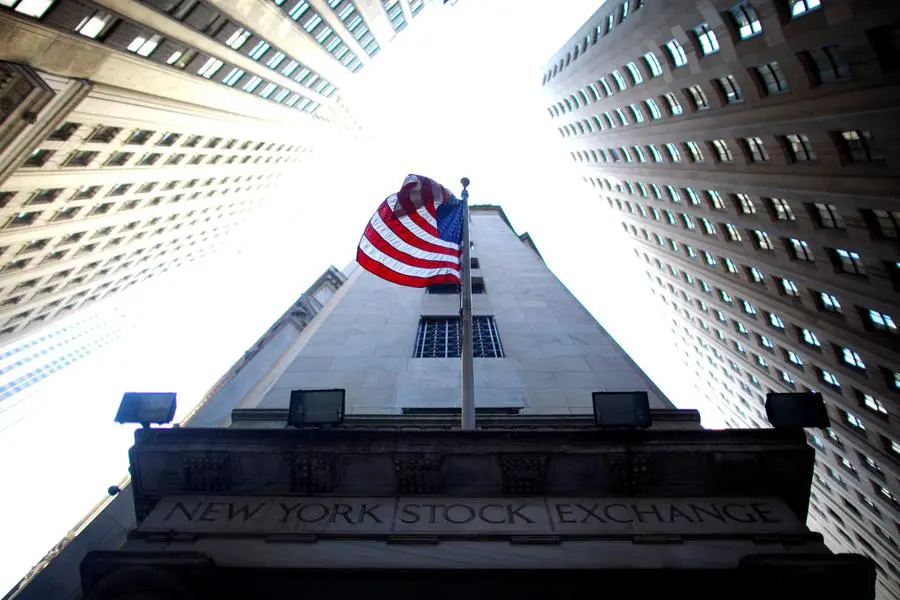PHOTO
U.S. banking giants are pushing for a swath of lighter regulations from President Donald Trump's administration, and say they are heartened by signals that regulators are listening.
Bank bosses want to cut reporting requirements on some transactions, limit regulators' enforcement powers, speed up deal approvals and overhaul capital rules, four industry executives told Reuters. Those asks would include raising the bar on an anti-money-laundering rule requiring reporting of $10,000 cash transactions and limiting the use of confidential regulatory warnings, known as Matters Requiring Attention, two of those sources said. Another major change could be watering down annual stress tests, one of those sources said.
The industry has gotten encouraging signs from public statements from the administration, even as bankers wait for head regulators to be installed.
"There has been receptivity to our concerns," said Kevin Fromer, head of the Financial Services Forum, which represents the largest global banks and has been pushing for lighter capital and supervisory controls. "We’re at the early stages of that conversation."
Public statements by regulators have indicated a change of focus. Treasury Secretary Scott Bessent told the Economic Club of New York this month that the financial regulatory agenda needed "a fundamental refocusing of supervisors' priorities," while Travis Hill, acting FDIC head, said at a bankers conference in Washington that regulators need to be "more focused on the real fundamental financial risks and less on the administration around that."
REGULATORY CHANGE
The changes being pushed could amount to some of the most significant bank deregulation in years. Most recently, some larger banks saw rule relief in 2019 under a “tailoring” project undertaken in the first Trump administration.
The wishlist for sweeping regulatory changes comes after the industry fought Biden-era regulators who sought to implement stricter capital rules known as Basel endgame last year. The proposal was effectively scrapped in a major victory for banks, and now the industry is seeking further relief.
Some bankers contend that regulators in recent years have been unfairly heavy-handed even as large institutions report robust earnings and show resilience through the pandemic and 2023 industry turmoil, when three regional lenders failed.
Still, proponents of tougher rules argue they provide critical guardrails for the financial system, protecting consumers and the broader economy.
"Financial rules protect Main Street families while weakening them enrich Wall Street bankers," said Dennis Kelleher, head of the advocacy group Better Markets, which pushes for stricter financial rules.
Treasury spokespeople did not respond to a request for comment.
Spokespeople for agencies that supervise banks - the Federal Deposit Insurance Corporation, and Federal Reserve - declined to comment. The White House did not respond to a request for comment.
SUPERVISION, ENFORCEMENT
Bank bosses have a broader, ambitious goal to water down supervision and enforcement, three of the sources said. The industry seeks to rein in regulators' focus to material financial risks that can be quantified.
Banks have complained for years that examiners expanded scrutiny far beyond core financial matters and into areas such as corporate governance, computer systems and compensation, according to the Bank Policy Institute, a trade association representing large U.S. lenders.
Industry leaders aim to water down MRAs handed down by regulators such as the Federal Reserve and the Office of the Comptroller of the Currency (OCC), three sources said. Lenders treat MRAs as urgent matters, devoting many employees to repair work to avoid fines or other punishments.
BPI said some MRAs represented "illegal overreach" by regulators, who should concentrate on material risks to banks' financial condition.
Bessent echoed that concern in his New York speech, calling on agencies to "drive a culture that focuses on material financial risk rather than box checking."
Lenders are also pushing for a broad overhaul of the Fed's so-called stress tests, an annual exercise aimed to measure banks' abilities to handle potential crises. The Fed signaled late last year it was open to changes to make the exam more transparent. BPI led a lawsuit against the Fed late last year demanding such changes.
'OUTDATED' CASH RULE
One of the easiest regulations to adjust could be an anti-money laundering (AML) rule requiring banks to file reports on customers who make more than $10,000 in cash transactions in a day, according to one of the sources, an industry executive who declined to be identified discussing supervisory matters. That would require rewriting a rule within The Treasury Department.
AML has been cited by lobby groups as contributing to 'debanking', or when a bank closes an individual's account. President Donald Trump publicly complained of 'debanking' of conservatives earlier this year.
“The requirements that we have ... under the anti money-laundering laws and the various sanctions regimes, the general laws globally are quite onerous," said Kathryn Ruemmler, Chief Legal Officer and General Counsel of Goldman Sachs at a conference this month.
The industry has long complained that the limit is outdated and generates unnecessary filings. It would welcome a higher threshold such as $75,000 or even $100,000, the source said.
One leading bank regulator has endorsed the idea. Rodney Hood, the acting head of the Office of the Comptroller of the Currency, which monitors national banks, said in a statement to Reuters that the current limit is "outdated and burdensome," and backed an increase among other rule easings.
Congress is set to question Jonathan Gould, Trump's pick to permanently lead the OCC, on Thursday.
(Reporting by Lananh Nguyen, Tatiana Bautzer in New York, Pete Schroder in Washington, additional reporting by Chris Prentice; editing by Megan Davies and Nick Zieminski)





















